Should You Keep a Degu as a Pet?
Updated on 04/26/24
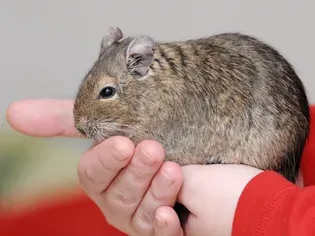
Should You Keep a Degu as a Pet? A Comprehensive Guide
Introduction
Degus, also known as Chilean bush rats, are captivating rodents that have gained popularity as exotic pets in recent years. With their playful nature, curious personalities, and distinctive appearance, these gregarious creatures can provide companionship and entertainment for responsible owners. However, before making the commitment to bring a degu into your home, it's crucial to thoroughly understand their unique needs and the implications of providing them with the care they deserve.
Degu Characteristics and Behavior
Physical Attributes:
* Length: 9-12 inches
* Weight: 10-15 ounces
* Coloration: Varies from gray to brown, with a distinctive white belly
* Teeth: Ever-growing incisors that require gnawing to maintain proper length
Personality and Socialization:
* Highly social animals that live in colonies
* Playful and affectionate with familiar individuals
* Curious and inquisitive, with a strong exploratory instinct
* Can be vocal, communicating through a range of chirps, clicks, and whistles
Housing and Environment
Degus require a spacious enclosure that mimics their natural habitat. The minimum recommended size is 4 cubic feet per degu, with additional space for accessories and enrichment.
* Cage: Choose a wire cage with ample height to allow for vertical movement.
* Bedding: Provide a deep layer of absorbent bedding, such as shredded paper or hay.
* Hideouts: Offer multiple hiding places, such as tunnels, nesting boxes, or fleece pouches.
* Perches and Platforms: Provide perches and platforms at different heights to encourage climbing and exercise.
* Dust Bath: Degus need to take regular dust baths to maintain their skin and fur. Provide a shallow dish filled with fine dust.
Diet and Nutrition
Degus are herbivores and require a diet high in fiber and low in fat.
* Hay: Unlimited access to high-quality hay, such as timothy or orchard grass, is essential for dental health and digestion.
* Pellets: Offer a small amount of degu-specific pellets daily as a supplement to hay.
* Vegetables: Provide a variety of fresh vegetables, such as leafy greens, carrots, and bell peppers.
* Treats: Occasional treats, such as apple slices or berries, can be given in moderation as rewards.
Health and Veterinary Care
Like other pets, degus can experience various health issues. Regular veterinary checkups and prompt treatment are essential for maintaining their well-being.
* Dental Problems: Degus' teeth continuously grow, and chewing on hard objects is crucial for maintaining their length. Untreated dental issues can lead to pain and infection.
* Respiratory Infections: Degus are prone to respiratory infections, especially in dusty or drafty environments. Symptoms include sneezing, coughing, and difficulty breathing.
* Skin Problems: Degus can develop skin problems, such as ringworm or mites. Proper hygiene and regular dust baths are important for skin health.
* Obesity: Overfeeding and lack of exercise can lead to obesity in degus. Maintaining a healthy diet and providing ample opportunities for activity is essential.
Companionship and Socialization
Degus are social animals and should never be kept alone. They thrive in pairs or small groups, where they can engage in social behaviors such as grooming, playing, and sleeping together.
* Introductions: Introduce degus gradually and in a neutral territory to minimize aggression.
* Playtime: Provide supervised playtime outside of the enclosure to allow for exercise and bonding.
* Socialization: Handle degus regularly to build trust and establish a strong bond.
Pros and Cons of Degus as Pets
Pros:
* Affectionate and playful
* Curious and intelligent
* Low-maintenance grooming
* Can be litter-trained
Cons:
* Require a spacious enclosure
* Need regular social interaction
* Can be vocal, especially at night
* May have a short lifespan (typically 5-8 years)
Conclusion
Whether or not a degu is the right pet for you depends on your lifestyle, home environment, and commitment. They are fascinating and rewarding animals, but they require responsible ownership and proper care. By providing a suitable enclosure, a balanced diet, regular veterinary attention, and plenty of companionship, you can give your degu the opportunity to thrive and bring joy to your life.
Additional Resources:
* [American Degu Association](https://www.degutopia.org/)
* [Degu World](https://www.deguworld.com/)
* [The Degu Rescue](https://www.degu.org/)
Explore More Pets
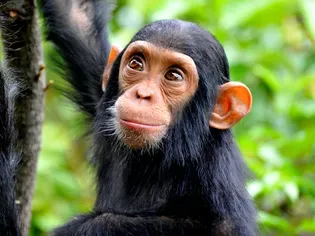
Exotic Pet Species
Should You Keep a Chimpanzee as a Pet?
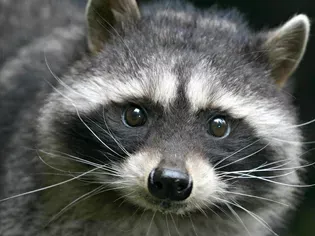
Exotic Pet Species
Should You Keep a Raccoon as a Pet?
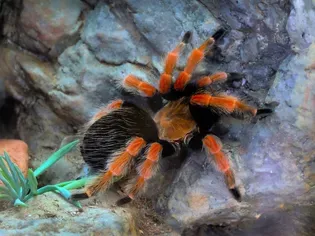
Exotic Pet Species
How to Care for a Pet Mexican Red-Knee Tarantula
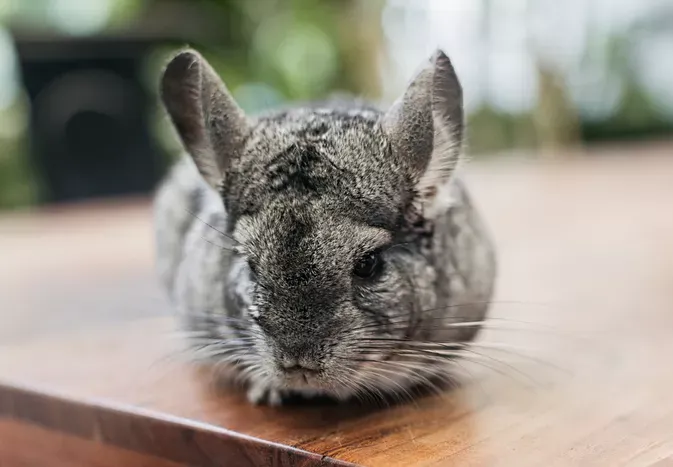
Exotic Pet Species
12 Best Exotic Pets for Apartment Living
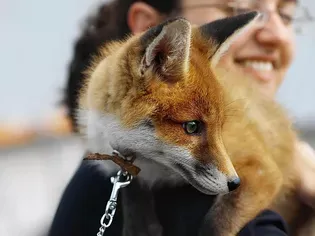
Exotic Pet Species
Best Foxes to Keep as Pets
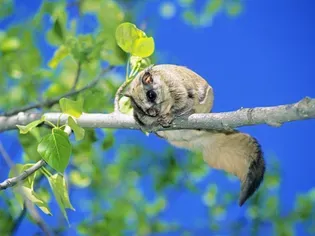
Exotic Pet Species
Should You Keep a Northern Flying Squirrel as a Pet?
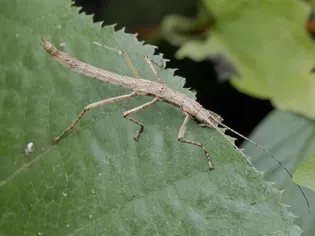
Exotic Pet Species
Should You Keep Stick Insect as a Pet?

Exotic Pet Species
Should You Keep a Big Cat as a Pet?